13 Weird Reasons Why You’re Still Tired When You Wake Up, According To Science
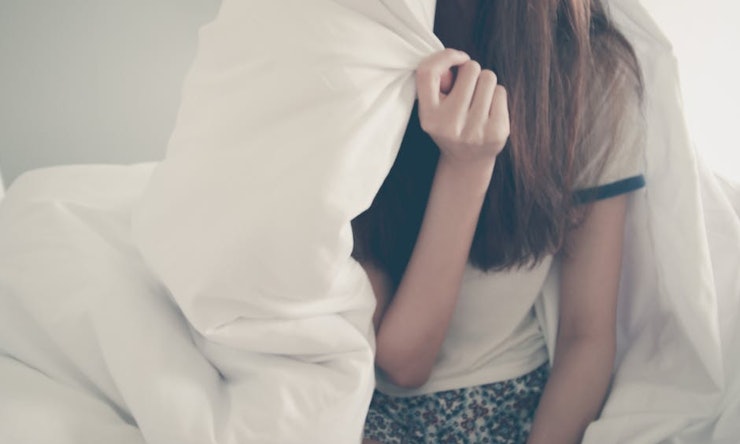
If morning grogginess and daytime exhaustion has become your MO, you’ll probably want to start figuring out why you’re still tired when you wake up. It may not seem like a big deal — I mean, everyone’s tired, right? But since your sleep directly impacts everything else you do, getting to the bottom of the issue can mean improving the rest of your life.
As Dr. David Edelson, the medical director of HealthBridge Sleep Medicine tells me, some side effects of lack of sleep include daytime fatigue, poor job performance, hypertension, depression, anxiety, and an increased risk of motor vehicle accidents, among other things. So yea… it’s a pretty big deal.
If you’re practicing good sleep hygiene (going to bed at the same time every night, sleeping in a dark room, keeping your phone far, far away, etc.) but still wake up tired, it could mean some kind of weird sleep disorder is cropping up in the middle of the night, or another outside force is keeping you awake.
“If you find yourself constantly waking up tired in the morning, seek the advice of a doctor experienced in diagnosing and treating sleep disorders,” Edelson says. He or she can find out what’s going wrong, and give you some treatment options so you can finally get the rest you need.
Below, a few weird reasons — from sleep terrors to blue light — that might explain why you aren’t sleeping well at night.
1. Insomnia
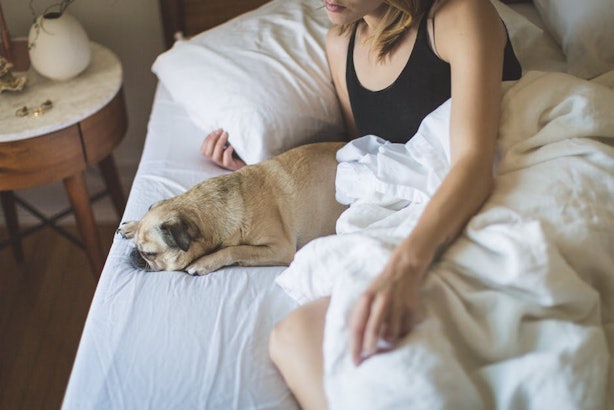
Insomnia is one of the leading causes of fatigue, affecting up to 20 percent of the population. “Causes include stress, medications, travel, poor sleep hygiene conditions, caffeine, nicotine, anxiety and depression, among many others,” says Edelson. “Patients may not be able to fall asleep, or may not be able to stay asleep for more than a few hours.” So, even though you spent all night lying in bed, it might explain why you’re still so sleepy.
2. Sleep Walking
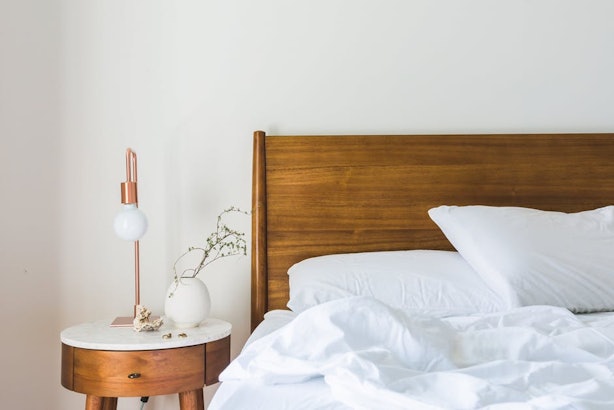
Sleep walking isn’t super common among adults, but it can happen. “Individuals sometimes will sit upright in bed appearing awake; others will actually get out of bed and walk through the house,” Edelson says. “Sometimes they will speak non-sensical words, and might even be appearing to have arguments with imaginary individuals.” Not the most restful experience.
3. Exploding Head Syndrome
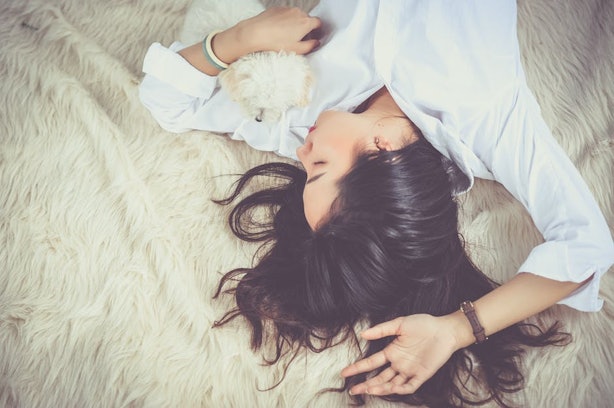
Brace yourself, because this one is weird. “Patients with EHS will experience the sensation of their head exploding, or a bomb or gunshot going off inside their head when beginning to fall asleep,” Edelson says. You can probably imagine how shocking that might be, especially when you’re just trying to get a good night’s sleep.
“While not dangerous in and of itself, it can cause tremendous anxiety in patients when they head to bed at night. This can disrupt the sleep cycles and cause fatigue upon awakening.”
4. Bruxism Or Teeth Grinding

If you clench your jaw or grind your teeth while you sleep — and up to 30 percent of normal adults do — you might wake up feeling less than rested.
As Edelson says, “[Teeth grinding] can cause jaw pain and severe headaches, and often disrupts the patients ability to get a restful nights sleep.”
5. Restless Leg Syndrome
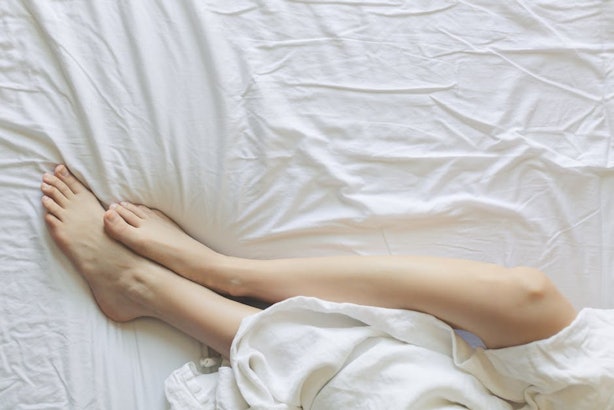
Do you wake up in a mess of blankets, or next to an angry partner who claimed you kicked them all night long? If so, you might be suffering from Restless Leg Syndrome.
“This does not make for restful sleep,” says Dr. Jacob Teitelbaum, author of Fatigued to Fantastic! “You can videotape yourself while sleeping to see if this is happening, or your bed partner may be able to tell you.”
6. Sleep Sex
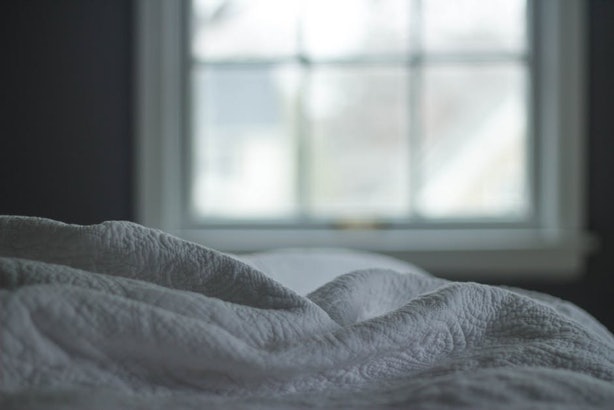
If you’re having sleep sex all night, it makes perfect sense why you’re so damn tired in the a.m. “Individuals in a state of full blown sleep can and have engaged in sexual acts, ranging from fondling, masturbation all the way up to sex with another person,” Edelson says. Again, ask your partner is this seems to be the case.
7. Sleeping Too Much
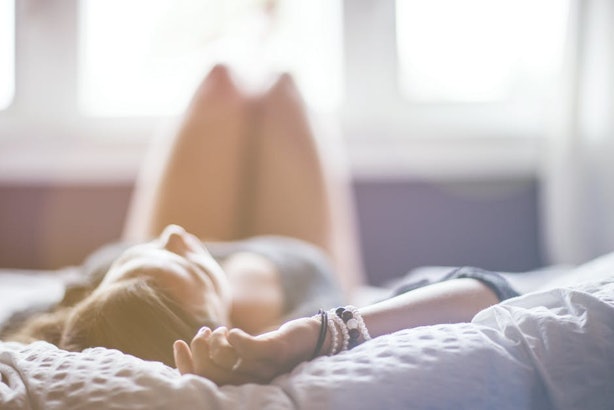
While it might sound heavenly to sleep for hours upon hours, you can actually overdo it. As Julie Tramonte, a sleep advocate for Verlo Mattress tells me, the National Sleep Foundation recommends seven to eight hours of sleep each night. If you go beyond that recommended amount, you might wake up feeling groggy rather than alert and energized.
8. Sleep Terrors
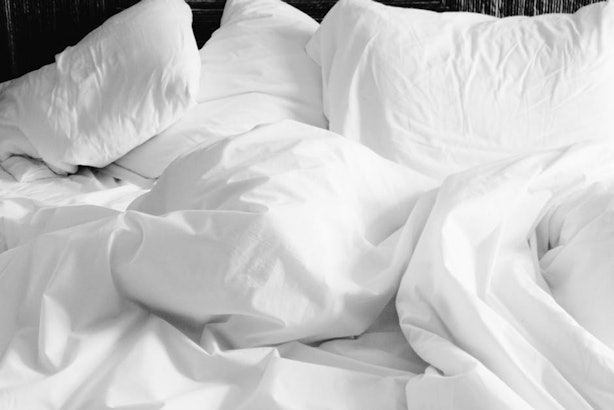
Sleep terrors are no fun. As Edelson tells me, patients with this disorder will wake suddenly from deeper stages of sleep screaming or having a full-blown panic attack. If you have this issue, you’ll wake up eventually with little to no memory of the event, but you’ll definitely feel the effects come morning.
9. Blue Light

As registered nurse Rebecca Lee tells me, the blue light emitted from your electronic devices is proven to keep you awake, resulting in a poor night’s sleep. “Blue light tricks the brain into thinking that it is daytime, and interferes with the sleep-inducing hormone, melatonin,” she says. “Melatonin tells our bodies that it is time to go to sleep and aids in sleepiness.”
10. A Hot Room

It might feel nice to turn up the heat and climb into bed, but this simple act could be what’s keeping you up at night. As Lee says, “Research suggests that a cool room between 60-65 degrees will help keep your body at the right sleeping temperature. Be sure the covers you sleep under are the right thickness to keep you comfortable and not too warm. On hot summer nights, cool the room with a ceiling fan or a fan placed in front of an open window.”
11. Sleep Apnea
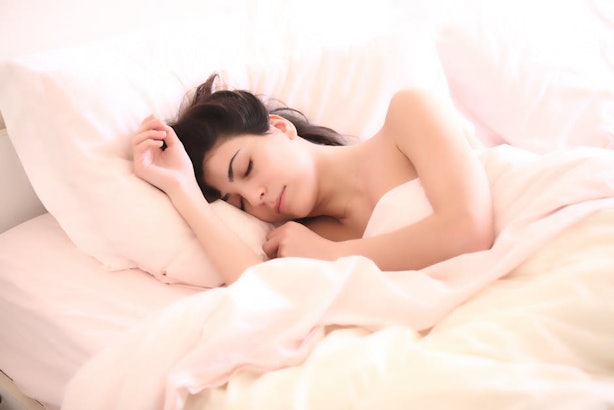
Perhaps one of the scarier causes of fatigue is sleep apnea. “When we sleep, the muscles throughout our bodies relax, including the muscles in our airway. Often times the airway is so narrow that it becomes intermittently blocked, making it difficult to breathe. Not only does this lead to very poor quality of sleep and fatigue the next day, but it can also causes intermittent fluctuations in blood pressure,” says Dr. Sujay Kansagra, Mattress Firm’s sleep health consultant. If you suspect this, definitely tell your doctor ASAP.
12. A Missing “Sleep Association” Element
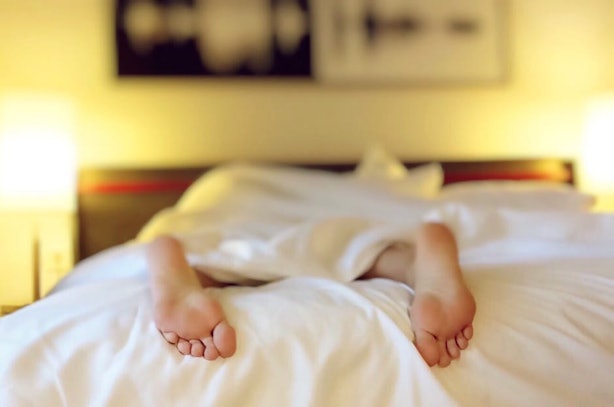
We’re all creatures of habit, so your brain can totally tell when something’s off or missing from your nighttime routine, and may keep you up as a result. “Simply put, a sleep association is anything in our environment that we associate with the process of going to sleep,” Kansagra says. “If a certain element is present often enough, we began to have difficulty falling asleep when this element is no longer present.” Weird, right?
13. Sleep Eating Disorder

This disorder, known as nocturnal sleep-related eating disorder, causes suffers to march on into the kitchen about two to three hours after they fall asleep. “There, they will make and consume a wide variety of bizarre and inappropriate foods, often in an out of control manner,” Edelson says. “Patients remain completely asleep during these episodes, and have no recollection of the events. They will often wake in the morning to find the kitchen in total disarray.”
Does any of the above sound familiar to you? If so, chat with your doctor, or consider setting up a sleep evaluation. These issues may be weird, but there’s still plenty you can do to get your sleep back on track.




